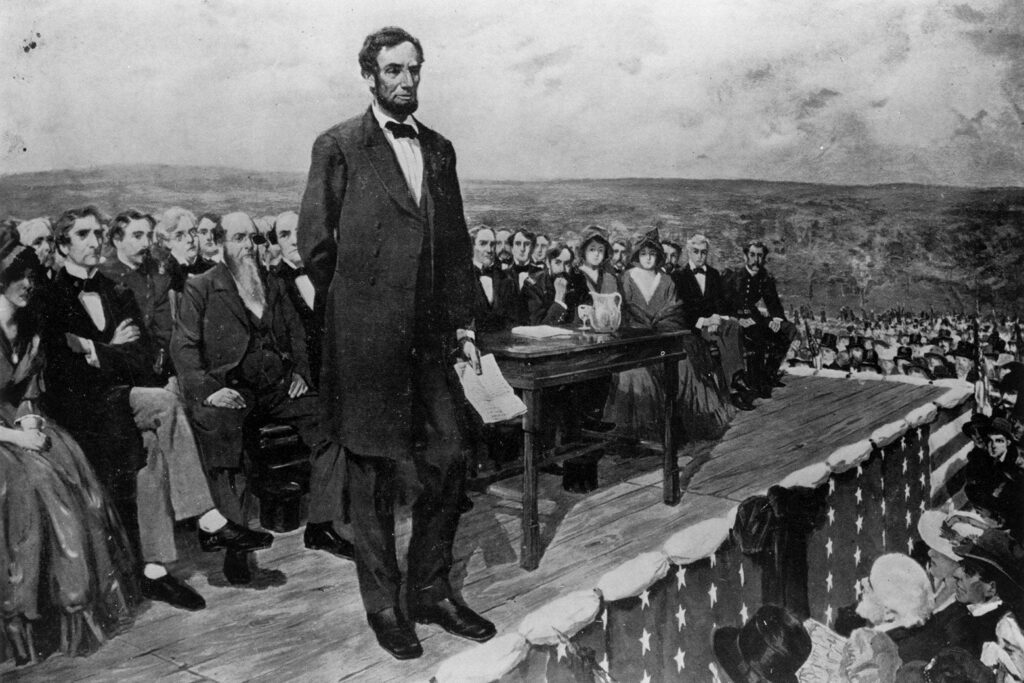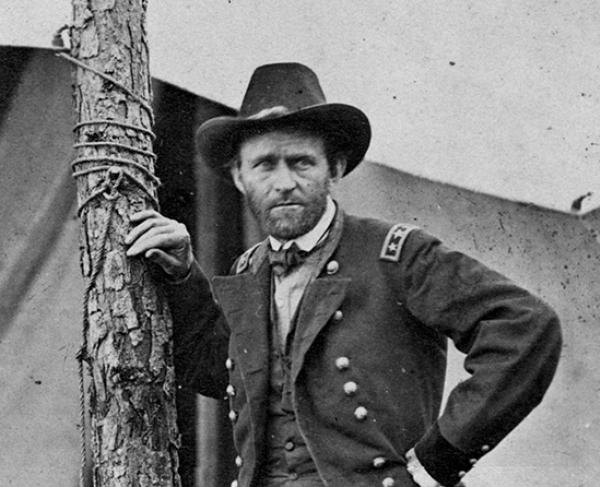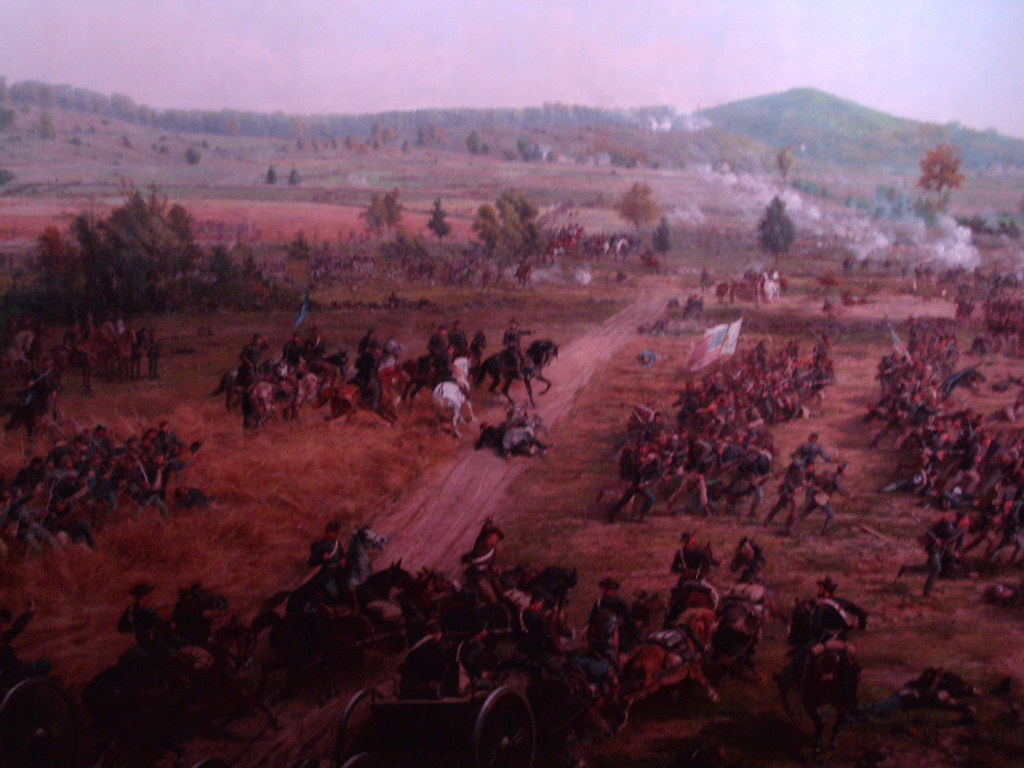The Union’s triumph in the American Civil War hinged on more than just manpower and weaponry; it was intricately linked to the revolutionary impact of railroads. Emerging during the war’s infancy, railroads played a pivotal role in the Union’s success, swiftly transporting troops, coordinating actions, and ensuring a seamless flow of supplies. While the South grappled with a mere 9,500 miles of track, the North boasted a sprawling 22,000 miles. The undeniable advantage provided by railroads became a linchpin in the Union’s eventual triumph.
Lincoln’s Strategic Symphony

Abraham Lincoln, the unwavering leader of the North, orchestrated a strategic symphony that has reverberated throughout history. As commander-in-chief, Lincoln’s steadfast determination and tactical acumen led the Union to victory. His shrewd selection of military leaders, including Grant and Sherman, proved decisive. Lincoln’s strategic brilliance prioritized control of key waterways, implementing the ‘Anaconda Plan’ to strangle Confederate supplies. His oratorical skills, displayed in iconic speeches such as the Gettysburg Address, inspired a nation and sustained morale through dark times.
Ulysses S. Grant: Architect of Victory

Ulysses S. Grant, the Union’s formidable general, emerged as the architect of victory. Renowned for his tactical brilliance and unyielding resolve, Grant led the Union to pivotal triumphs at Shiloh, Vicksburg, and Chattanooga. His aggressive warfare approach, logistical mastery, and compassionate treatment of soldiers, regardless of allegiance, played crucial roles. Grant’s leadership wore down Confederate forces, culminating in their surrender. His legacy endures as one of America’s revered military leaders.
Emancipation’s Strategic Impact
The abolition of slavery emerged as a strategic linchpin in the Union’s triumph. Galvanizing Northern support, the Emancipation Proclamation reframed the war, framing it as a quest for freedom. Immediate effects saw thousands of enslaved people liberated in Union-held territories, disrupting the Confederate economy. The Proclamation’s ripple effect weakened the South’s ability to sustain its war effort, securing a moral and ideological advantage for the Union.
Confederate Internal Strife
The Confederacy’s downfall was not solely at the hands of external forces; internal strife played a significant role. Conflicts over strategy, resource allocation, and military leadership plagued the South. Discord between the Confederate government and states, coupled with infighting among generals, hindered a unified defense. This internal disarray weakened the Confederacy on all fronts, contributing substantially to its failure.
Who ends the Civil War?
The surrender took place at Appomattox Court House in Virginia. This event is widely considered the formal conclusion of the Civil War, although other Confederate forces continued fighting for a brief period afterward.
Military Surrender:
- General Robert E. Lee’s surrender to General Ulysses S. Grant at Appomattox Court House, Virginia, on April 9, 1865, marked the most significant turning point. This surrender effectively ended the Confederate Army’s major resistance in the eastern theatre;
- Subsequent surrenders of other Confederate forces followed through June 1865, including in the west and Trans-Mississippi theatre.
Political and Legal Measures:
- President Abraham Lincoln’s Emancipation Proclamation in 1863 set the course for abolishing slavery and weakened the Confederacy’s economic and moral justification;
- The passage of the 13th, 14th, and 15th Amendments over the following years formally abolished slavery, secured civil and voting rights for Black Americans, and aimed to solidify Reconstruction efforts.
Social and Economic Factors:
- The immense human cost of the war, with over 750,000 casualties, exhausted both sides and fueled public pressure for peace;
- The Union’s superior industrial capacity and resources ultimately aided their military campaigns.
Therefore, it’s most accurate to say that the Civil War ended through a combination of military strategies, political decisions, social pressures, and economic realities, rather than attributing it solely to one individual.
Why did the South lose the Civil War?
There isn’t one simple answer to why the South lost the Civil War, as a complex interplay of factors contributed to their defeat. However, some key elements stand out:
Military Miscalculations:
- Initially aggressive strategies with hopes of quick victories gave way to a defensive stance later, placing the South on the back foot;
- Underestimating the Union’s industrial and manpower advantages led to resource shortages and manpower depletion;
- Internal conflicts among Confederate leaders and logistical challenges hampered effective military coordination.
Economic Shortcomings:
- Reliance on a primarily agrarian economy limited industrial production and financial resources needed for sustained war effort;
- Disruptions to trade and blockade of Southern ports crippled their access to vital supplies and international support;
- Inability to effectively mobilize and utilize enslaved people’s labor further weakened their economic base.
Social and Political Divisions:
- Limited national identity and fragile loyalty to the Confederacy, especially among poorer white populations, eroded morale and cohesion;
- Internal debates regarding slavery and states’ rights hampered unified government action and resource allocation;
- Union policies like the Emancipation Proclamation capitalized on internal divisions and drew away potential Confederate supporters.
Superior Union Power:
- The North’s vast industrial capacity allowed for mass production of weapons, supplies, and uniforms, giving them a significant advantage;
- Greater access to manpower through conscription and immigration boosted their troop numbers and allowed for longer campaigns;
- More robust financial resources enabled the Union to sustain the war effort despite setbacks.
It’s important to acknowledge that these factors interact in complex ways, and historians continuously debate their relative importance. Additionally, analyzing the war purely through a “winner-loser” lens can minimize the immense human cost and complex social dynamics at play.
In finale
The Union’s victory in the American Civil War stands as an intricate symphony, harmonizing superior resources, strategic brilliance, and unwavering determination. From Lincoln’s leadership to Grant’s military prowess, the abolition of slavery, and Confederate internal conflicts, each note played a crucial role. The echoes of victory reverberate through history, shaping the nation’s destiny and leaving an indelible mark on the annals of the American Civil War.
